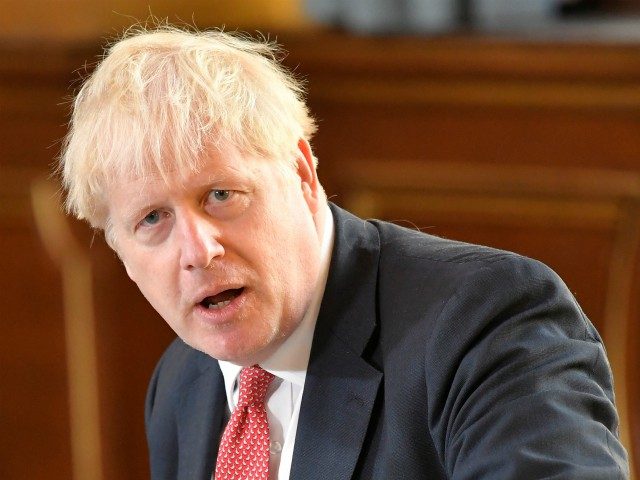Prime Minister Boris Johnson has pledged that if no deal is reached with the EU by October 15th, then the UK should “move on” and prepare for a clean-break exit.
Ahead of the eighth round of negotiations with Brussels, the prime minister drew a red line in Brexit talks on Monday, saying: “There needs to be an agreement with our European friends by the time of the European Council on 15 October if it’s going to be in force by the end of the year.
“So there is no sense in thinking about timelines that go beyond that point. If we can’t agree by then, then I do not see that there will be a free trade agreement between us, and we should both accept that and move on.”
In the strongest indication recently that he is willing to take the UK out of the EU at the end of the transition period on December 31st, 2020, with or without a free trade agreement with the EU, he said that leaving without a deal and having a “trading arrangement with the EU like Australia’s… would be a good outcome of the UK”.
While Australia does not have a trade deal with the European Union, it does have frameworks for facilitating trade.
The UK left the EU on January 31st, 2020, but remains in a transition period — tied to the bloc’s rules — until the end of this year, during which time London and Brussels seek an agreement on future trading arrangements.
Prime Minister Johnson continued, saying that his government would be prepared to move onto World Trade Organization (WTO) rules with the bloc, adding the benefits to making a clean break.
“We will have full control over our laws, our rules, and our fishing waters. We will have the freedom to do trade deals with every country in the world. And we will prosper mightily as a result,” he said.
A sticking point for agreeing on a trade deal has been fishing rights, with the UK wanting to take back control of her territorial waters while the EU has demanded long-term assurances to access fishing at current arrangements. European fishermen currently land fish in more than 60 per cent of Britain’s waters.
The prime minister made a generous offer to the EU on fishing last week, which would see the UK double its landing but with the rest to be negotiated annually with the bloc — an offer Brussels reportedly rejected.
The EU also demands that the UK continues to abide by some measures of regulatory alignment, and for the terms of a free trade agreement to be arbitrated by the European Court of Justice.
While Mr Johnson said that he would remain open to talking to “our EU friends”, “we cannot and will not compromise on the fundamentals of what it means to be an independent country to get it”.
If a prime minister’s pledge to leave the EU by a certain date sounds familiar, it is. Former Prime Minister Theresa May had said 108 times that the UK would leave the EU on March 29th, 2019 — only to go on to delaying Brexit twice.
However, the UK’s hardline Brexit negotiator Lord David Frost said that Boris Johnson’s government — which has an 80-seat majority, elected on the pledge to deliver Brexit — is not the minority government of Theresa May, populated with Remainer Tories.
Lord Frost said the EU would have to learn to take this prime minister at his word, telling the Mail on Sunday: “We came in after a Government and negotiating team that had blinked and had its bluff called at critical moments and the EU had learned not to take our word seriously.
“So a lot of what we are trying to do this year is to get them to realise that we mean what we say and they should take our position seriously.”
Frost made headlines earlier this year when he criticised the EU’s offer of a deal, calling it “low-quality” and one which no “democratic country could sign”.
Speaking ahead of a meeting with his Brussels counterpart Michel Barnier on Tuesday, Lord Frost said that the bloc needs to display more “realism” in negotiations and must “fully recognise” the reality of the UK becoming a sovereign state.
He said in comments reported by the Evening Standard: “Today, I will sit down with Michel Barnier and drive home our clear message that we must make progress this week if we are to reach an agreement in time.
“We have now been talking for six months and can no longer afford to go over well-trodden ground.
“We need to see more realism from the EU about our status as an independent country.”

COMMENTS
Please let us know if you're having issues with commenting.